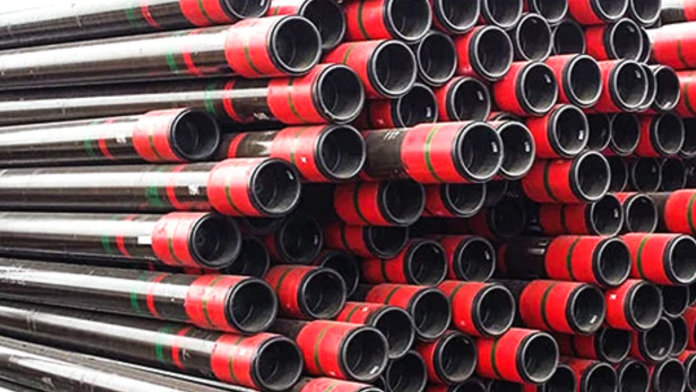Oil Country Tubular Goods (OCTG) are specialized steel pipes used in the exploration, extraction, and production of oil and natural gas. These tubular items are vital to the oil and gas sector, fulfilling a variety of purposes ranging from drilling to well completion. OCTG comprises a variety of pipes, including casing, tubing, and drill pipes.
Casing pipes offer structural support for the wellbore and prevent the drilling hole from collapsing. To withstand the harsh circumstances found in the oil and gas sectors, OCTG pipes must adhere to stringent manufacturing standards. OCTG pipes are made of materials that are resistant to corrosion, high-pressure situations, and other downhole problems.
Furthermore, improved connection technologies provide secure and reliable seals, which are crucial to the overall performance and integrity of oil and gas wells. Given the industry’s complex and diverse problems, octg pipes are designed to deliver durability, dependability, and efficiency throughout the life of oil and gas wells.
Addressing Challenges with OCTG Pipes
This article delves into the specific difficulties that OCTG pipes effectively address, emphasizing how these specialized tubular goods contribute to increased efficiency and reliability in the volatile oil and gas sector.
Corrosion Resistance
One of the most difficult difficulties in the oil and gas business is the corrosive environment in which pipes are exposed. OCTG pipes are frequently made of corrosion-resistant alloys or coated with protective layers to reduce the influence of corrosive substances during the extraction process and extend the tubing’s life.
High Pressure and Temperature Environments
Drilling operations frequently involve high-pressure, high-temperature (HPHT) conditions, especially in deep wells. OCTG pipes are designed to survive harsh conditions. The materials and manufacturing procedures used ensure that these pipes maintain structural integrity, preventing failures in tough downhole circumstances.
Downhole Challenges
Abrasive wear, impact, and fatigue are all frequent downhole concerns in the oil and gas extraction industry. Material hardness, toughness, and wear resistance are all carefully considered when designing OCTG pipes to withstand these circumstances. This durable design improves the pipes’ dependability in downhole applications.
Resisting Sour Gas
Oil and gas reserves frequently contain sour gas, which is high in hydrogen sulfide (H2S). Exposure to sour gas can cause sulfide stress cracking, which is a major risk in the industry. OCTG pipes are made with sour-resistant materials and coatings that ensure tube integrity and reduce the possibility of cracking.
Casing and Tubing Integrity
The integrity of casing and tubing is important to the success of oil and gas wells. OCTG pipes are intended to provide dependable casing and tubing solutions by combining structural strength, dimensional correctness, and resistance to deformation. This integrity is critical for wellbore stability and proper reservoir management.
Dealing with Extreme Depths
The industry’s trend is to drill deeper wells, which presents pressure, temperature, and mechanical stress concerns. OCTG pipes are designed to manage extraordinary depths, with careful consideration given to the materials’ tensile and compressive strength, ensuring the pipes can endure the enormous forces encountered at deeper depths.
Enhanced Connection Technologies
OCTG pipes use innovative connection technologies to address issues such as pipe threading, sealing, and make-up torque. Premium connections, which are designed to offer a secure and leak-tight seal, help to improve the well’s overall reliability, particularly in crucial applications like deepwater drilling and unconventional reservoirs.
Thermal Expansion and Contraction
Thermal changes in oil and gas wells occur often throughout production, resulting in pipe expansion and contraction. OCTG pipes are designed to withstand temperature changes while maintaining structural integrity. This skill is critical for averting failures and maintaining a continuous flow of hydrocarbons.
Regulatory Compliance
The oil and gas business is heavily regulated, with strict rules in place to ensure safety and the environment. OCTG pipes are made according to industry norms and regulations, resolving concerns about quality assurance, material traceability, and adherence to certain performance parameters.
Remarks
The oil and gas sector faces numerous issues, and OCTG pipes are at the forefront of tackling them. These specialized tubular products provide solutions that improve efficiency, dependability, and safety in drilling, extraction, and transportation activities in corrosive environments as well as harsh pressures and temperatures. OCTG pipes play an important role in guaranteeing the performance and sustainability of oil and gas operations around the world since they are constantly changing to suit industry demands.










